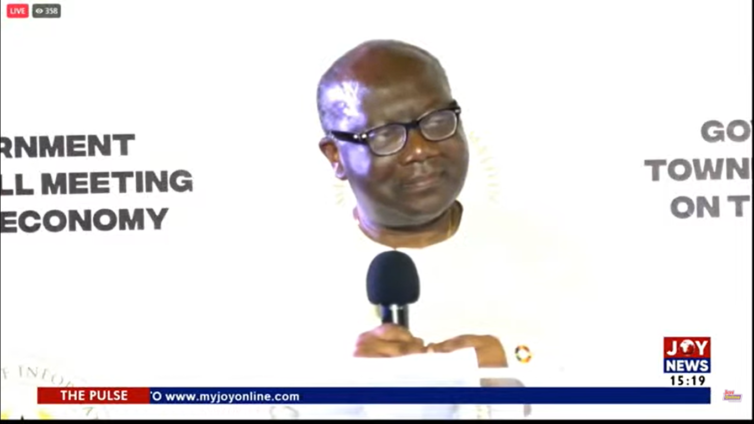Government spent ¢33.61 billion on interest payments alone in 2021, the January 2022 Bank of Ghana Monetary Policy Report indicates.
This was higher than the envisioned target of ¢32.5 billion.
According to the report, domestic interest payments accounted for 78.9% of the total interest payments. Total interest payments, however, constituted about 50.4% of domestic revenue.
This was up from 45.6% recorded in 2020.
Disturbingly, government will spend ¢37.2 billion, about 7.5% of GDP in 2022 on interest payment.
Meanwhile, total expenditures and arrears clearance for 2021 was estimated at GH¢110.401 billion, about 25.1% of GDP.
This was however below the target of ¢113.750 billion (25.9% of GDP).
The report also said the outturn was 97.1% of the target and represented a year-on-year growth of 10.3%.
Compensation
Compensation of employees including wages and salaries, pensions and gratuities, and other wage-related expenditure totalled ¢31.663 billion, higher than the target of ¢31.490 billion.
In terms of fiscal flexibility, compensation of employees constituted 47.5% of domestic revenue mobilised at the end of 2021, lower than the 52.4% recorded in the corresponding period of 2020.
Goods and Services
The use of Goods and Services for the period under review was ¢8.624 billion, higher than the expected target of ¢8.523 billion.
The outturn was 1.2% above the target and also represented a year-on-year decline of 16.7%.
Grants to other government institutions
Grants to other government units made up of National Health Fund, Education Trust Fund (GET Fund), Road Fund, Energy Fund, District Assemblies Common Fund (DACF), Retention of IGFs, Transfer to Ghana National Petroleum Corporation and other earmarked Funds, all summed up to ¢13.314 billion.
This was lower than the envisioned target of GH¢18.081 billion and represented a shortfall of 26.4%.
It, however, recorded a year-on-year growth of 12.1%.
Other expenditure
Other expenditure, made up of ESLA transfers and COVID-19 related expenditure for 2021, totalled ¢4.537 billion, which was 33.2% below the target of ¢6.791 billion.
Capital expenditure
Capital expenditure for the period was ¢15.541 billion, about 3.5% of GDP.
This was higher than the envisaged target of ¢12.222 billion (2.8% of GDP) by 27.2%.
This outturn represented a year-on-year growth of 28.6%.
Also, foreign-financed capital expenditure accounted for 65.7% of the total expenditure, with domestic financed capital expenditure making up the remaining 34.3%.
Latest Stories
-
Expansion Drive: Takoradi Technical University increases faculties
2 hours -
SHS heads demand payment of outstanding funds before reopening of schools
3 hours -
We thank God for the 2024 general elections – Akufo-Addo
3 hours -
Coconut Grove Beach Resort marks 30 years of excellence with memorable 9 lessons & carols service
3 hours -
WAFU B U-17 Girls’ Cup: Black Maidens beat Nigeria on penalties to win inaugral tournament
4 hours -
Real Madrid beat Sevilla to keep pressure on leaders Atletico
5 hours -
Liverpool put six past Spurs to go four points clear
5 hours -
Manchester United lose 3-0 at home to Bournemouth yet again
5 hours -
CHAN 2024Q: ‘It’s still an open game’ – Didi on Ghana’s draw with Nigeria
5 hours -
CHAN 2024Q: Ghana’s Black Galaxies held by Nigeria in first-leg tie
6 hours -
Dr Nduom hopeful defunct GN bank will be restored under Mahama administration
7 hours -
Bridget Bonnie celebrates NDC Victory, champions hope for women and youth
7 hours -
Shamima Muslim urges youth to lead Ghana’s renewal at 18Plus4NDC anniversary
8 hours -
Akufo-Addo condemns post-election violence, blames NDC
8 hours -
DAMC, Free Food Company, to distribute 10,000 packs of food to street kids
9 hours

